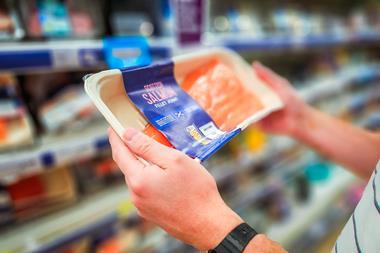The meat industry has hit back at suggestions that the discovery of meat from a cloned animal in the UK could spiral into a crisis of similar magnitude to BSE in the 1990s.
Industry representatives said it was vital to make it clear to consumers and Britain's import partners that the threat posed by cloned meat was nowhere near as serious as that potentially posed by BSE.
Scientific evidence showed cloning was not a food safety issue, said Quality Meat Scotland chairman Donald Biggar.
"The debate surrounding cloning technology is one based on potential ethical and animal welfare concerns it is vital to make this clear differentiation."
It was "unhelpful" to link cloning and BSE, warned Lee Woodger, head of the NFU food chain unit. "BSE was a disease in cattle and in no way are we saying there's an illness in an animal being cloned," he said.
Earlier this week, news broke that milk from a cloned cow's offspring had entered the British food chain, swiftly followed by confirmation from the FSA that meat from the progeny of two cloned cows had entered the food chain and been eaten.
As The Grocer went to press, the FSA confirmed the cloned meat had come from just two animals, but concerns were being raised by members of the public that the presence of cloned meat in the UK could be more widespread than the authorities were letting on.
"I'm sure there is more of that cloned meat about than they are admitting," one member of the public wrote on a Sky News blog.
Another questioned the validity of claims that eating meat from cloned animals was not harmful to health. "Remember 'the experts' denying emphatically for years that BSE could be transmitted to humans, until proven wrong?"
The discovery of BSE in Britain in 1986 culminated in a ban on the export of all cattle and cattle products from March 1996 to 2006. It cost the industry billions and resulted in over 200,000 cattle being slaughtered.
Industry representatives said it was vital to make it clear to consumers and Britain's import partners that the threat posed by cloned meat was nowhere near as serious as that potentially posed by BSE.
Scientific evidence showed cloning was not a food safety issue, said Quality Meat Scotland chairman Donald Biggar.
"The debate surrounding cloning technology is one based on potential ethical and animal welfare concerns it is vital to make this clear differentiation."
It was "unhelpful" to link cloning and BSE, warned Lee Woodger, head of the NFU food chain unit. "BSE was a disease in cattle and in no way are we saying there's an illness in an animal being cloned," he said.
Earlier this week, news broke that milk from a cloned cow's offspring had entered the British food chain, swiftly followed by confirmation from the FSA that meat from the progeny of two cloned cows had entered the food chain and been eaten.
As The Grocer went to press, the FSA confirmed the cloned meat had come from just two animals, but concerns were being raised by members of the public that the presence of cloned meat in the UK could be more widespread than the authorities were letting on.
"I'm sure there is more of that cloned meat about than they are admitting," one member of the public wrote on a Sky News blog.
Another questioned the validity of claims that eating meat from cloned animals was not harmful to health. "Remember 'the experts' denying emphatically for years that BSE could be transmitted to humans, until proven wrong?"
The discovery of BSE in Britain in 1986 culminated in a ban on the export of all cattle and cattle products from March 1996 to 2006. It cost the industry billions and resulted in over 200,000 cattle being slaughtered.

















No comments yet